Analyzing the Saints Running Backs in 2021
New Orleans Saints RB Alvin Kamara was expected to be the focal point of the team’s offense entering the 2021 season. Injuries and declining skills to QB Drew Brees and an ankle injury to WR Michael Thomas had forced Kamara to shoulder the load in 2020.
Brees retired last offseason and Thomas was lost for the year in training camp. Jameis Winston replaced Brees, but he was knocked out for the season with a knee injury in Week 8. The Saints did nothing during the offseason to bolster talent at the skill positions.
Kamara, the most versatile offensive player in the league, helped the Saints rushing attack rank fourth in 2020 and led the team in receptions. New Orleans banked on that same kind of performance in 2021.
Saints 2021 Position Grades
Running Back
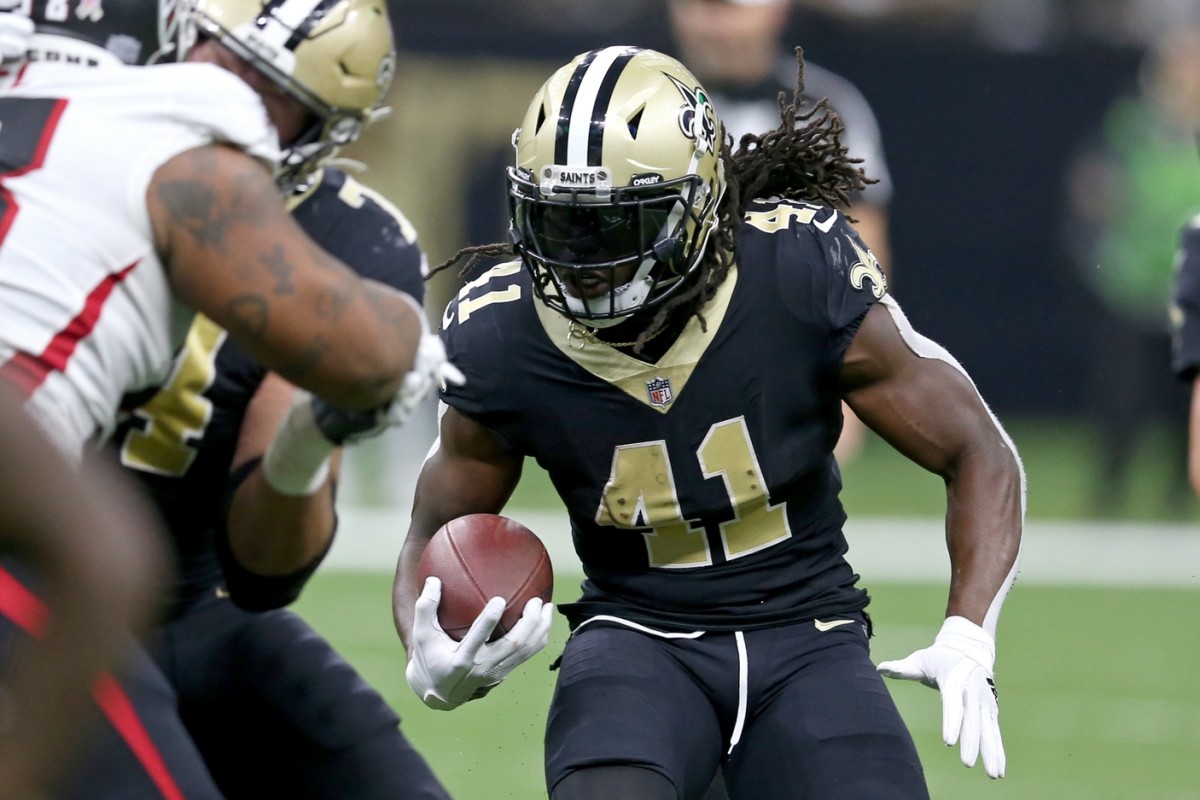
Alvin Kamara started the year strong, rushing for 83 yards and catching a touchdown during a season-opening rout of the Packers. He had at least 80 yards rushing in three of the first four weeks, including one 100-yard outing.
Kamara continued to have solid production until suffering a knee injury during a Week 9 loss to Atlanta. The injury sidelined him for five games. He returned in Week 14 with a 120-yard rushing effort in a win over the Jets, but was held in check on the ground over the next three games.
Finishing the year strong, Kamara had 146 yards rushing on a career-high 30 carries in the season finale against the Falcons. Despite missing five games, he led the team with 898 yards rushing and scored four touchdowns. Kamara had a career-high six games with at least 70 yards on the ground, including three 100-yard outings.
Not surprisingly, Kamara was also the prime target for the passing game. He led the team with 47 receptions, resulting in 439 yards and 5 touchdowns. Kamara had the team's best receiving performance of the year at Seattle in Week 7, catching 10 passes for 128 yards.
New Orleans had a difficult time getting their dynamic back in space all season. An offensive line battered by injuries and extra defensive attention limited Kamara's effectiveness.
Kamara's receiving totals were the lowest of his five-year career. His rushing average of just 3.7 per carry was also the lowest of his career. Still, the 26-year-old back carried the offense most of the season and was often the attack's only viable threat.
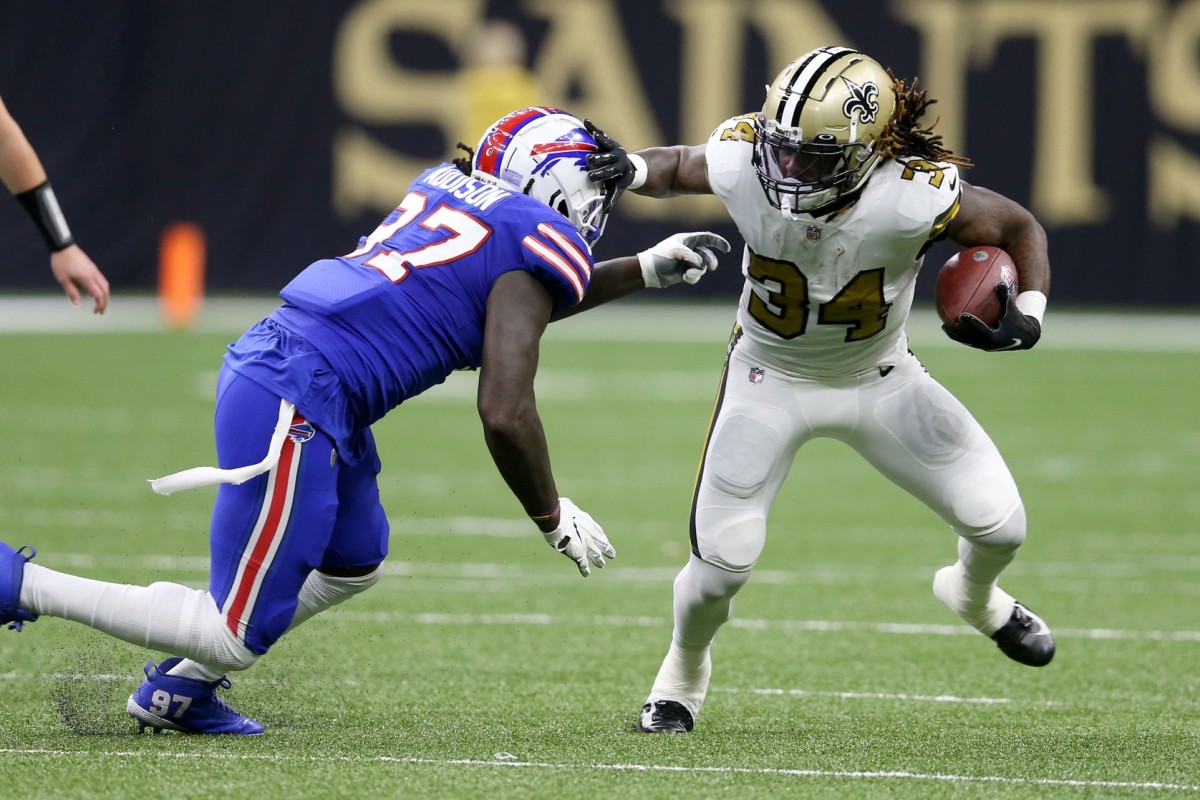
Second-year RB Tony Jones Jr. had a strong training camp and impressive preseason. His development caused the team to part ways with veteran RB Latavius Murray before the season opener.
Jones rushed for 50 yards to open the year against Green Bay, but had modest production over the next three weeks. He suffered an ankle injury in the fourth week that forced him to miss the next seven games.
Upon his return in Week 11, Jones managed just 65 yards rushing over the last seven contests. He had 142 yards rushing on the year, averaging just 2.7/carry and adding five receptions for 29 yards.
Not nearly as athletic as Kamara, Jones is best between the tackles. He showed the potential to be a short-yardage back with good vision and understanding of blocks.
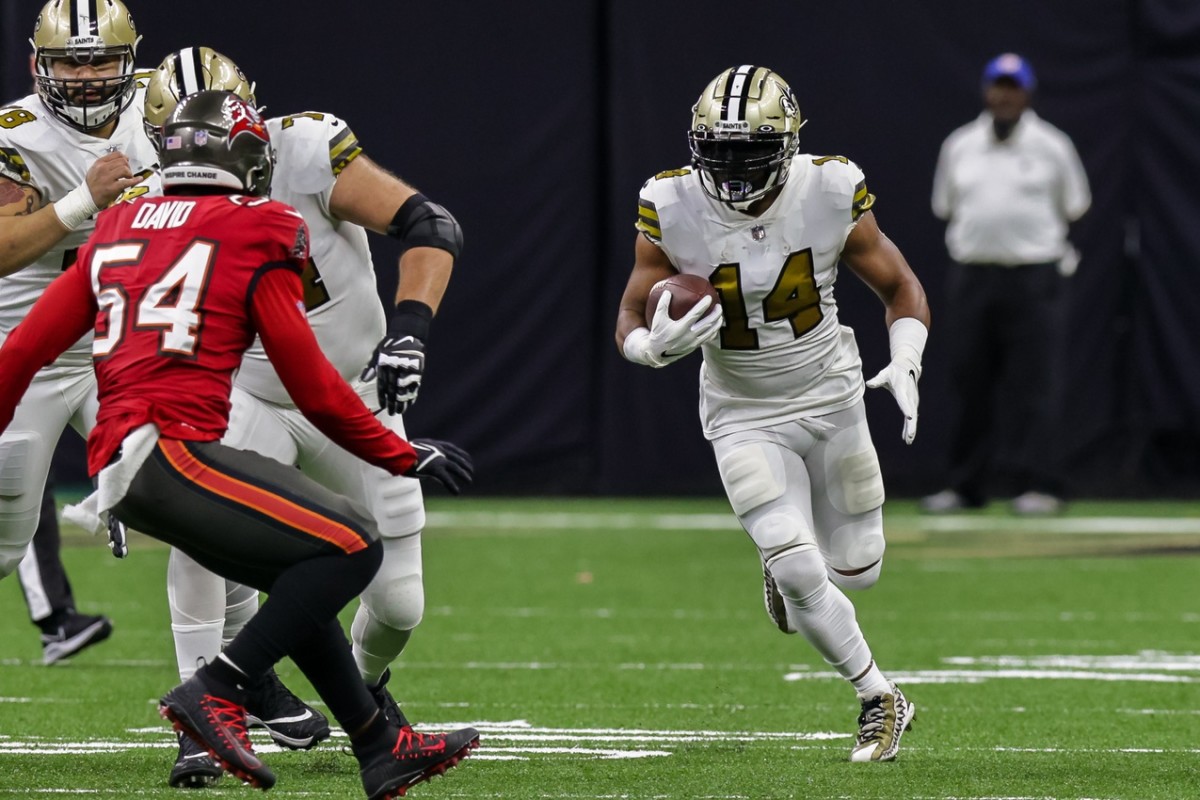
After the injury to Jones, the Saints brought back a familiar face when they traded for veteran RB Mark Ingram at mid-season.
The 32-year-old Ingram showed he had plenty left in the tank. He'd become the franchise's all-time rushing leader during the year and provided a solid complement to Kamara.
Ingram had 337 yards from scrimmage in his first four weeks with the Saints. Unfortunately, he was hampered by a knee injury down the stretch. The injury caused him to miss three games and limited his effectiveness when he was in the lineup.
Ingram had 260 yards rushing and 20 receptions for 138 yards in seven games with New Orleans. The 11-year veteran still has terrific power between the tackles and adequate burst when healthy.
Saints coach Sean Payton is one of the few that still use the fullback position regularly. Carolina Panthers cast-off Alex Armah and undrafted rookie Adam Prentice split duties during the year. Neither player proved very effective blockers or short-yardage receivers.
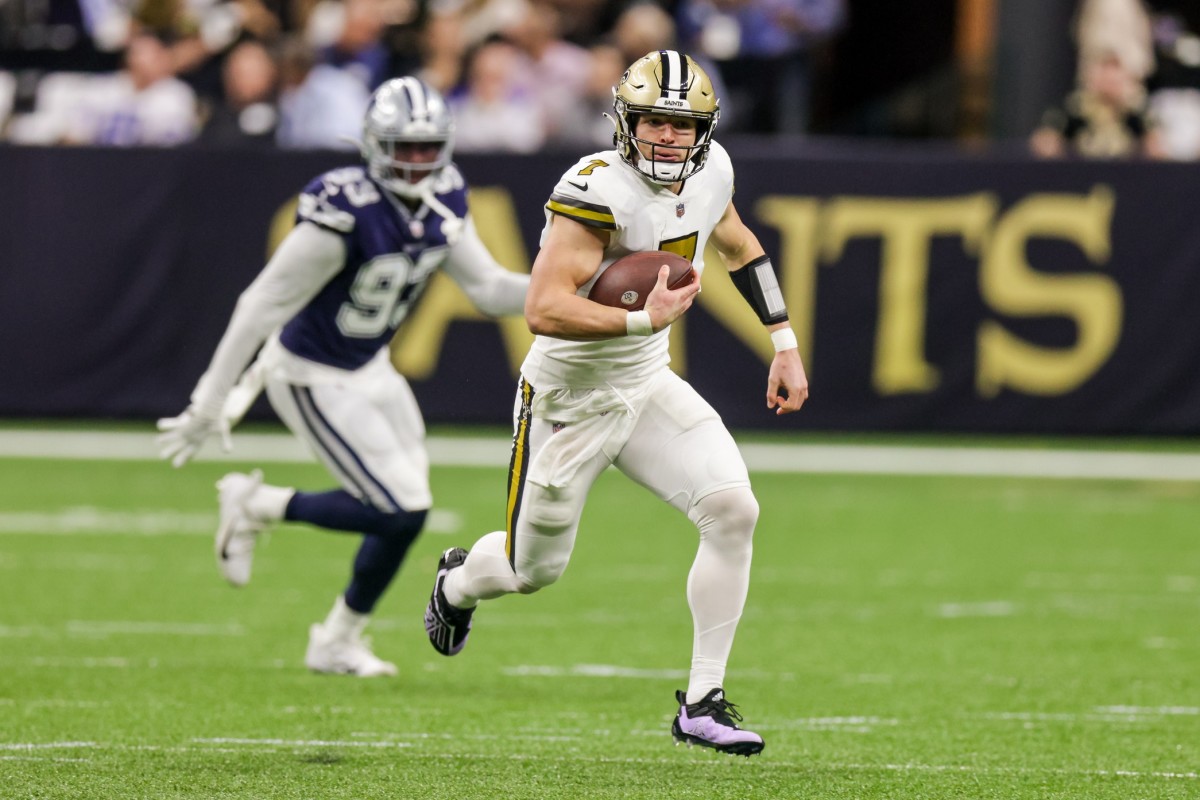
Other than Kamara, utility weapon/QB Taysom Hill was the team's most productive rusher in 2021. Hill was used sparingly as a positional player early in the year. He'd also miss two games with a concussion and later two more with a foot injury.
After Winston's season-ending injury and four losses from backup Trevor Siemian, Hill was inserted at quarterback in Week 13. He'd start five of the last six games there. The jury is still out on Hill as a passer, but there's no denying that he adds an extra dynamic to the rushing attack.
Hill rushed for 101 yards in his first start behind center, a home loss to Dallas. Despite dealing with the foot injury and a broken finger on his throwing hand, he helped the Saints to their most productive offensive performances since before Winston's injury.
Hill finished second on the team with 374 yards rushing. He averaged 5.3/carry and scored a team-high five touchdowns. Hill is a physical rusher who bowls over tacklers with breakaway speed in the open field. He has outstanding vision as a runner and teamed with Kamara to give the team a little production down the stretch.
New Orleans ranked 15th in rushing production and averaged 117 yards per game on the ground. However, they averaged just 3.9/carry as a team, ranking 28th in the league.
Injuries to the offensive line and defenses simply not respecting the Saints passing attack took a toll on the entire offense.
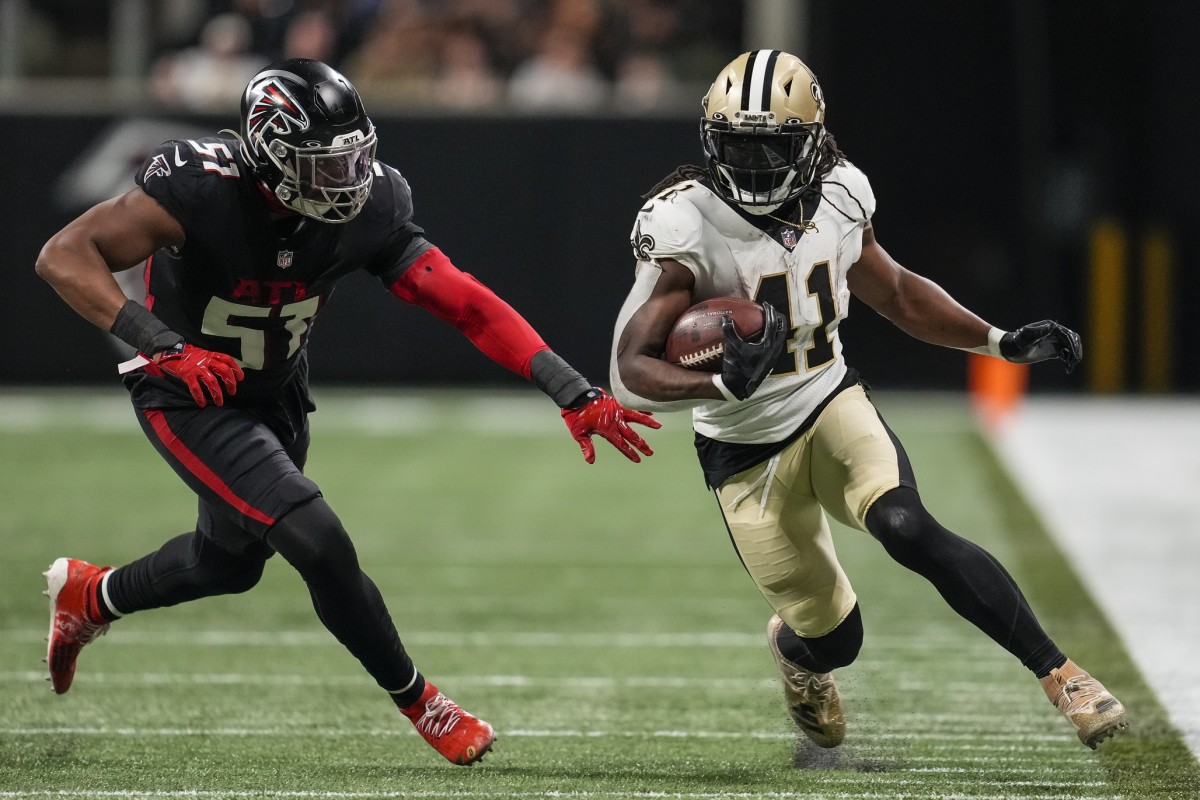
Kamara's ability to shoulder the load earned him his fifth Pro Bowl berth in as many seasons. His explosiveness may have been stymied, but his performance under difficult circumstances was admirable.
The rest of the position struggled at times, especially after Ingram's injury. Without Hill’s ability as a runner the Saints offense may have been even worse than what it was.
